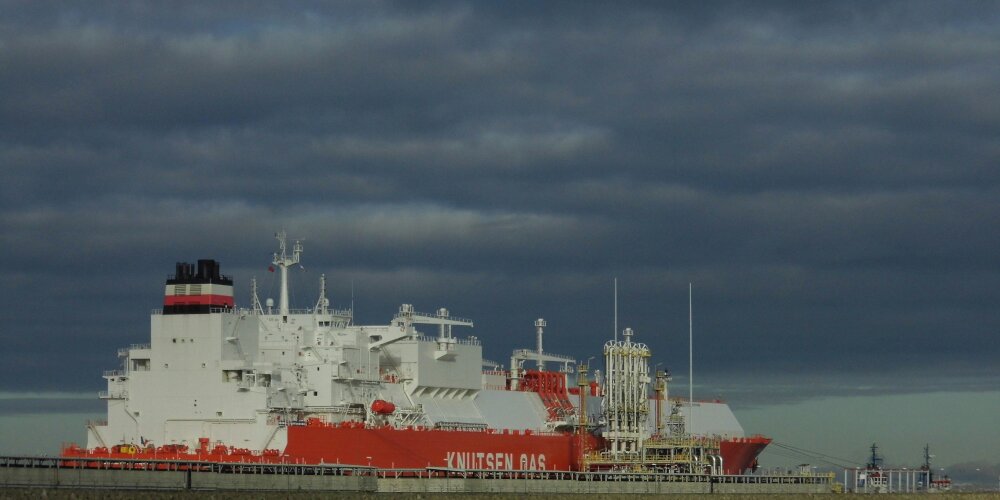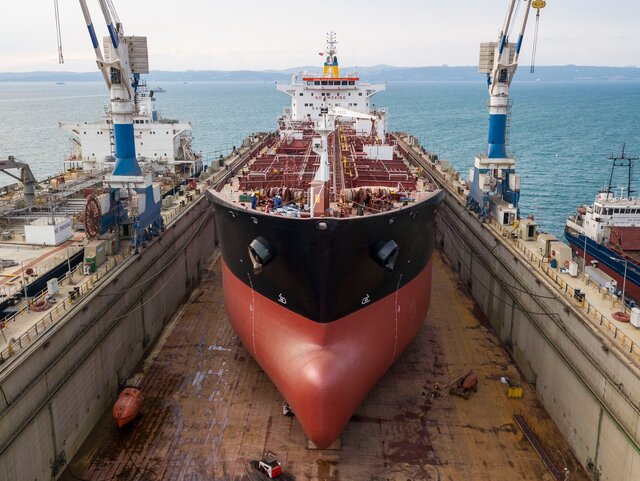Newbuild Capital Shifting to Alternative-Fuelled Vessels

New research from DNV has revealed that ordering of alternative-fuelled vessels is continuing to grow, with capital increasingly shifting to this segment away from traditional bunker-fuelled vessels.
According to data from DNV’s Alternative Fuel Insight (AFI) platform, new orders for alternative-fuelled vessels reached 19.8 million gross tonnes (GT) in the first six months of 2025, exceeding the 2024 figure by 78%.
In fact, a total of 151 alternative-fuelled vessels were ordered in the first half of 2025 - with notable orders in the container, bulker, tanker, and RoPax segments. Per DNV, this suggests that ‘some of the industry’s most commercially exposed and operationally complex segments are now leading the charge, reinforcing the view that alternative fuels are no longer a fringe strategy’.
So, what proved to be the alternative fuels of choice during the first half of 2025? DNV’s data found that LNG was the clear fuel of choice, accounting for 87 of the new vessels ordered. The strong runner-up was methanol - with a total of 40 vessel orders.
Other fuels remain niche. Ammonia, for example, accruing three orders, whilst hydrogen secured four orders.
Commenting on the shifting of newbuild capital to alternative-fuelled vessels, Knut Ørbeck-Nilssen, CEO Maritime at DNV, said:
“We’re seeing a broader shift take hold across the industry. The energy transition is no longer driven solely by first movers, it’s now being shaped by a second wave of shipowners who are integrating alternative fuels and technologies into their core strategies.
Even in a slower newbuild market, fuel choices are diversifying, and decarbonisation is becoming embedded in everyday decision-making. We expect that fuel choices and energy efficiency investments will accelerate as the regulatory framework becomes clearer over the next 4-10 months”.
Ørbeck-Nilssen’s comments were echoed by Jason Stefanatos, Global Decarbonisation Director at DNV, who said:
“The data reflects a sector that is actively recalibrating. We’re not seeing a slowdown in ambition, but rather a more measured approach to investment - one that balances optionality, compliance readiness, and long-term fuel strategy.
As shipowners weigh compliance strategies, the upcoming fuel intensity rules, which form part of the IMO’s Net-Zero Framework, are expected to accelerate this shift. We’re watching closely to see how this will be reflected in future ordering behaviour, particularly as fuel availability and infrastructure evolve, and we get further regulatory clarity when IMO’s lifecycle assessment guidelines are decided”.
DNV’s research has also revealed the progress that supporting infrastructure for alternative-fuels has made during the first half of 2025. So far this year, 13 LNG bunkering vessels have been ordered, with eight orders alone being placed in February.
Bunker fuel oil quality services
Whilst the future looks bright for alternative fuels, today, many vessels still rely on traditional bunker fuels.
And, these fuels are sometimes viewed as a ‘dumping ground’ for waste oil and other chemical wastes, which can result in engine damage or worse.
If you find yourself embroiled in a bunker fuel oil quality dispute, it’s vital that you are able to determine the root cause of the issue and gathered evidence that’ll help you make a claim.
Brookes Bell’s fuel specialists are ideally positioned to do just that.
Explore Brookes Bell’s bunker fuel oil quality services now
For more maritime industry insights, news and information, read the Brookes Bell News and Knowledge Hub…
IMO Approves Net-Zero Regulations for Global Shipping Industry | New Research Finds Propulsion Energy Saving Devices as Key to Cutting Fuel Use | MAN to Deliver World’s Largest Methanol Engine
- Author
- Anthony York
- Date
- 19/08/2025

